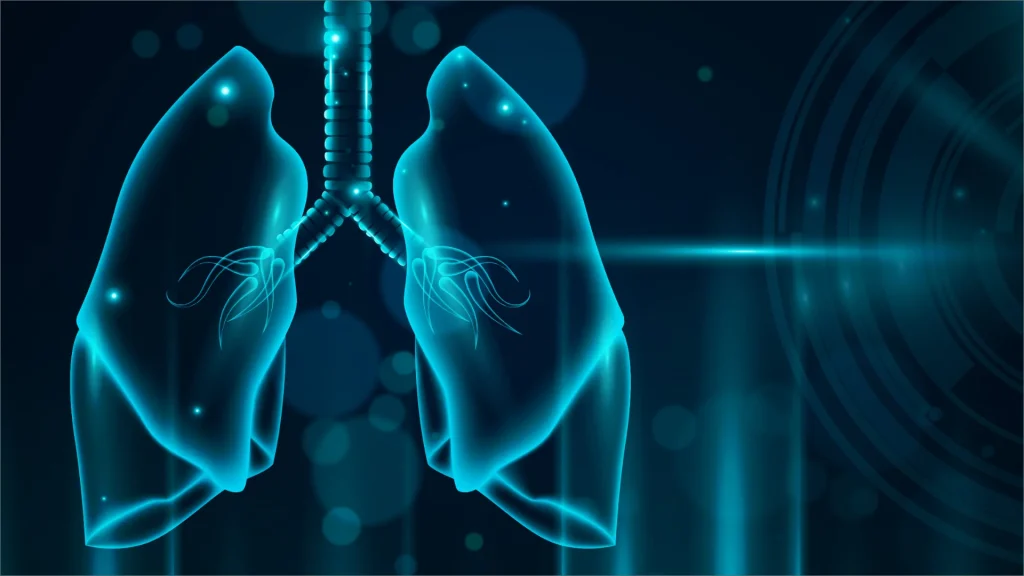Lung Cancer Screening
A New Opportunity for Early Detection and Improved Outcomes
Lung cancer remains the leading cause of cancer death in Australia. Historically, lung cancer has often been diagnosed at advanced stages, limiting treatment options and significantly impacting patient prognosis. However, a significant new initiative, the National Lung Cancer Screening Program, is set to transform this landscape by enabling early detection and improving survival rates.

The National Lung Cancer Screening Program: What You Need to Know
Commencing July 1st 2025, the Australian Government has launched a Medicare-subsidised National Lung Cancer Screening Program. This program offers a vital opportunity for high-risk individuals to undergo regular low-dose computed tomography (low-dose CT) scans, free of charge, with the aim of detecting lung cancer at its earliest, most treatable stages.
Why is This Program so Important?
Early Detection is Key
Lung cancer, when found early, is often treatable with surgery, leading to significantly higher survival rates and improved quality of life. Current estimates suggest that with a screening program, the proportion of lung cancers identified at an early stage (Stage 1) could increase from 16% to 60%. Conversely, advanced stage (Stage 4) diagnoses are projected to decrease from 53% to 11%.
Reduced Mortality
Large international trials have demonstrated that low-dose CT screening can detect up to 70% of lung cancers at early stages, with more than 65% of these successfully treated. This program is expected to save hundreds of lives in Australia each year.
Government Subsidised
Eligible patients will receive free low-dose CT scans under Medicare, removing financial barriers to this life-saving screening.
Who is Eligible for Screening?
The National Lung Cancer Screening Program targets individuals at high risk of developing lung cancer. You may be eligible if you meet all of the following criteria:
- You are aged between 50 and 70 years.
- You are asymptomatic, meaning you show no signs or symptoms suggesting you may have lung cancer (e.g., a new or changed cough, coughing up blood, unexplained shortness of breath, fatigue, unexplained weight loss, or persistent chest/shoulder pain).
- You currently smoke or have quit smoking in the past 10 years.
- You have a history of tobacco cigarette smoking of at least 30 pack-years (e.g., smoking one pack a day for 30 years, or two packs a day for 15 years).
It is crucial to note that if you are experiencing any symptoms suggestive of lung cancer, you should consult your healthcare professional immediately and not wait for screening.
"*" indicates required fields
The Screening Pathway
The National Lung Cancer Screening Program follows a structured screening and assessment pathway:
The National Lung Cancer Screening Program follows a structured screening and assessment pathway:
- Initial Assessment: Your healthcare provider (GP or other qualified professional) will assess your eligibility based on age and smoking history.
- Low-Dose CT Scan: If eligible, you will receive a referral for a low-dose CT scan of the chest.
- Results and Follow-Up:
- Very Low Risk: If no concerning findings, you will receive a reminder for your next screening scan in 2 years.
- Low to Moderate Risk Findings: Depending on the findings, you may require interval low-dose CT scans in 3, 6, or 12 months.
- High or Very High-Risk Findings: These findings will prompt a referral to a respiratory physician or other specialist linked to a lung cancer multidisciplinary team for further investigation.
How Mr Adrian Pick Can Help
As a highly experienced cardiothoracic surgeon with a focus on minimally invasive techniques for lung cancer, Mr Adrian Pick is ideally positioned to support patients identified through this new screening program.
Adrian Pick specialises in keyhole procedures for lung cancer and offers:
- Expert Consultation: For patients with concerning findings from screening, Mr Pick provides comprehensive assessment and discussion of potential diagnostic and treatment pathways.
- Minimally Invasive Surgical Options: Where lung cancer is diagnosed, Mr Pick offers advanced, minimally invasive surgical techniques (e.g., thoracoscopic lobectomy or wedge resection) to remove the tumour, often leading to enhanced recovery and reduced post-operative discomfort.
- Multidisciplinary Collaboration: Adrian Pick works closely with a network of respiratory physicians, oncologists, and other specialists, participating in multidisciplinary lung cancer meetings to ensure a holistic and evidence-based approach to patient care.
- Ongoing Surveillance: Following lung cancer resection, Mr Pick provides a five-year lung cancer surveillance program to monitor for recurrence.
While public awareness of this groundbreaking program is still developing, Adrian Pick’s practice is committed to informing and guiding eligible patients through the screening process and providing expert care for any subsequent findings.